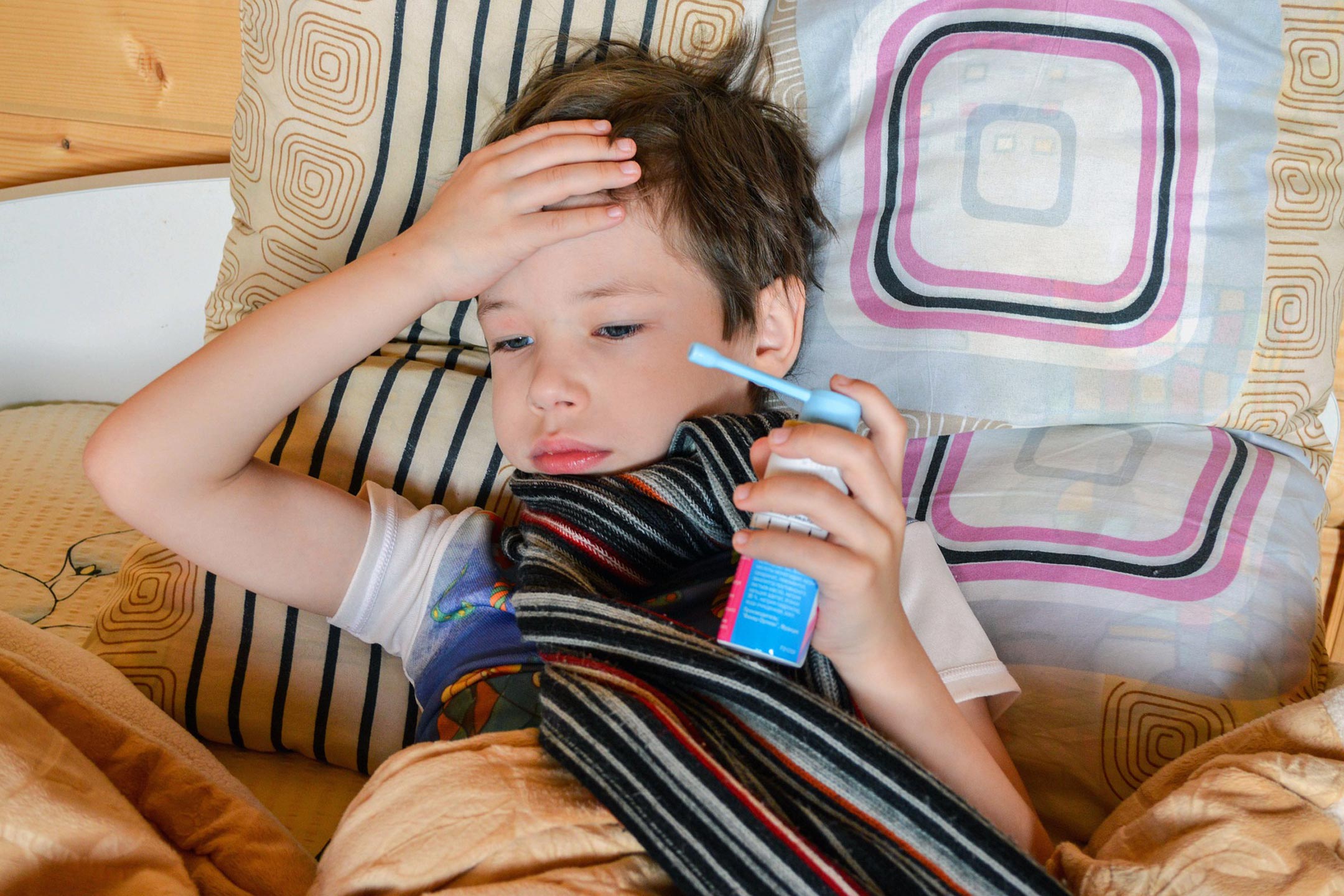
19 May The Etiquette Of Illness
Jennifer Dudding is dumbfounded by those who have no qualms about spreading their germs around.
My boys and I had been invited over for morning tea and we arrived to find the hostess carrying out a washing basket overflowing with freshly laundered clothes. She exclaimed how lovely it was to see us and welcomed us in, quickly adding that she had copious amounts of washing to hang out and we didn’t mind did we? The children mingled in the garden and as she pegged towels, sheets and pyjamas on the clothesline, she remarked that it had been a tiresome night as both her children had been up all night vomiting.
If you could have read my mind or even my body language at that precise moment, you would have seen anger, disbelief, shock and confusion. Why would she welcome us into her home for tea, cakes and a nip of gastro? Unable to respond to the situation developing around me, I resorted to my fallback position: politeness. We stayed for the playdate, but as we reversed out of her driveway, my pasted-on smile faded quickly. I had left with two children, an empty plate, a nappy bag and a violent case of gastroenteritis – all courtesy of our hosts.
Some days later, I surveyed the wreckage. Bottles of bleach, disinfectant and antibacterial wipes sat on the bench as emptied of their contents as the homeowners – two children and two adults physically and emotionally exhausted from a gastro so violent that injections were needed to halt the dry retching of one of us.
Why does anyone knowingly invite healthy people into a contagious environment? I don’t mean a number of families catching a viral gastro after a day out together – that is simply bad luck, as people are contagious with these viruses well before they manifest symptoms. No, I am referring specifically to people who know they are ill (or their children are ill) and who still purposely interact with others, fully aware that the disease they carry could be transferred.
This becomes a complex issue in schools and childcare. Parents who are forced to leave work to care for a sick child may feel pressured to return quickly, thereby returning their children to care earlier than recommended – in some cases while they are still infected. Situations such as these have prompted the Australian Government National Health and Medical Research Council to prepare a fact sheet of recommended minimum exclusion periods for infectious conditions for schools and childcare centres.
As for the grown-ups, is our contribution in the workplace so important that it’s worth risking the wellbeing of our colleagues and clients by returning to work when we are ill? Similarly for the stay-at-home workforce, is our desire to catch up at playgroup or the local coffee shop seen as a higher priority than the health of other babies, toddlers and adults?
In contrast, I know many people who take great care to minimise contact with others when illness is present. Recently, we had a meal on the table and glasses filled, when the phone rang; our guests had reached our street when their daughter had vomited all over her car seat. They were extremely apologetic about cancelling at the last minute, but were returning home. While an afternoon of good company was missed, it was nothing compared to the days of illness that may have resulted from their visit with an infectious child. We were sorry for their family, but they had put her best interests, and ours, first.
Sometimes these are extremely difficult situations to navigate, but once you’ve been served cupcakes, poured tea and your waiter or ‘friend’ has stirred in a spoonful of gastro, the path to take suddenly seems quite clear.




